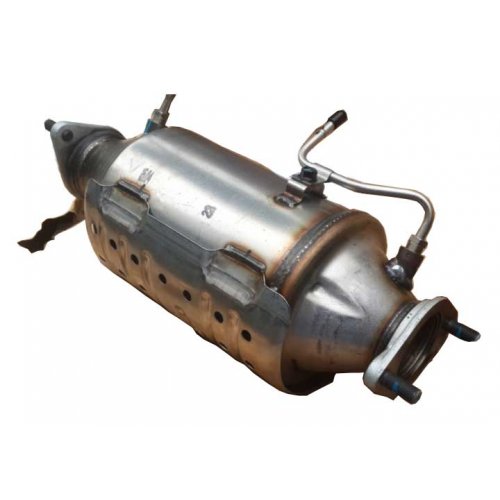Many of us have heard of catalytic converters and know vaguely they filter the exhaust fumes to cut back the amount of harmful compounds which are released to the environment. A lot of us can also be aware that when they make a mistake it is one of the most costly car repairs mainly because it should be replaced as a unit. Hopefully your catalytic converter will live a protracted and happy life, but just just in case, below are a few details of these to help you understand why they are extremely important.
What is a catalytic converter?
In your car’s exhaust system, the catalytic converter sits within the car relating to the engine along with the muffler. While it looks like the muffler on the outside of, inside is really a core of ceramic beads engrossed in pores that are coated with certain catalysts. Included in this are palladium, platinum and rhodium. Platinum is definitely an oxidation catalyst, rhodium is often a reduction catalyst and palladium does both.
What makes it work?

The catalytic converter works to lessen the emission of harmful gases for example co, nitrogen oxides and hydrocarbons. All of the gases through the engine pass through the converter along with the muffler. Since they pass over the ceramic beads a chemical reaction occurs which changes the gases into water vapour along with other harmless gases. The oxidation catalysts convert the dangerous and hydrocarbons into fractional co2 and water, as the reduction catalysts convert nitrogen oxide into its constituent elements of nitrogen and oxygen.
How do each goes wrong?
Catalytic converters may become clogged, but checking this is difficult for your car or truck repair technician. It’s going to frequently have being removed to ascertain if the engine’s performance then improves; when it does then this it’s blocked. Signs which you may experience are sluggishness on acceleration and reduced gas mileage. Other parts of the car may also increase the risk for converter to fail – bad exhaust valves or dodgy plugs bringing about unburned fuel overheating your catalytic converter. Finally, it could be effectively poisoned if you utilize the incorrect fuel – leaded petrol in particular, even though this is less frequent now that new petrol cars run on unleaded fuel.
What else could you do today to keep the catalytic converter in excellent?
Using the right fuel is crucial, rather than adding too many fuel additives (you need to avoid these generally unless recommended because of your garage). Ensuring the ignition system is in working order could also help conserve the converter mainly because it will minimize unburnt fuel getting inside it.
More information about Udalenie katalizatora v Ufe please visit resource: read this.
